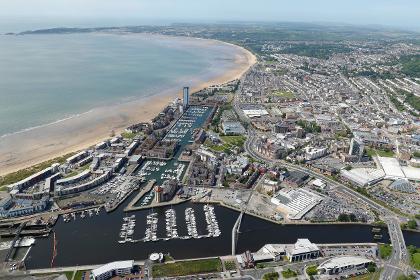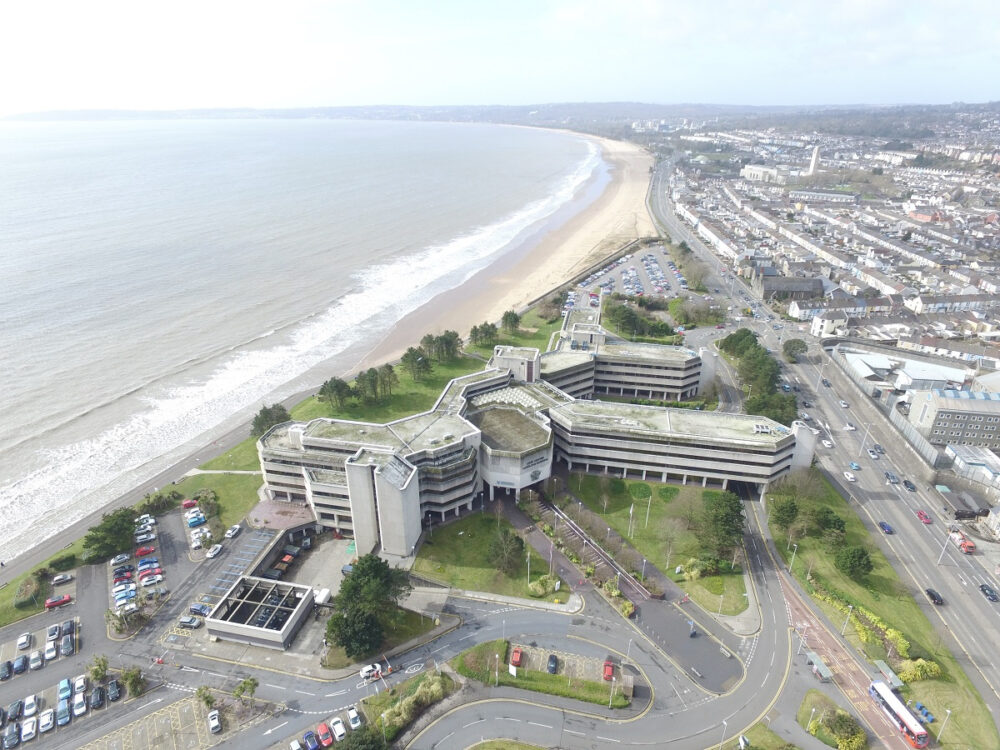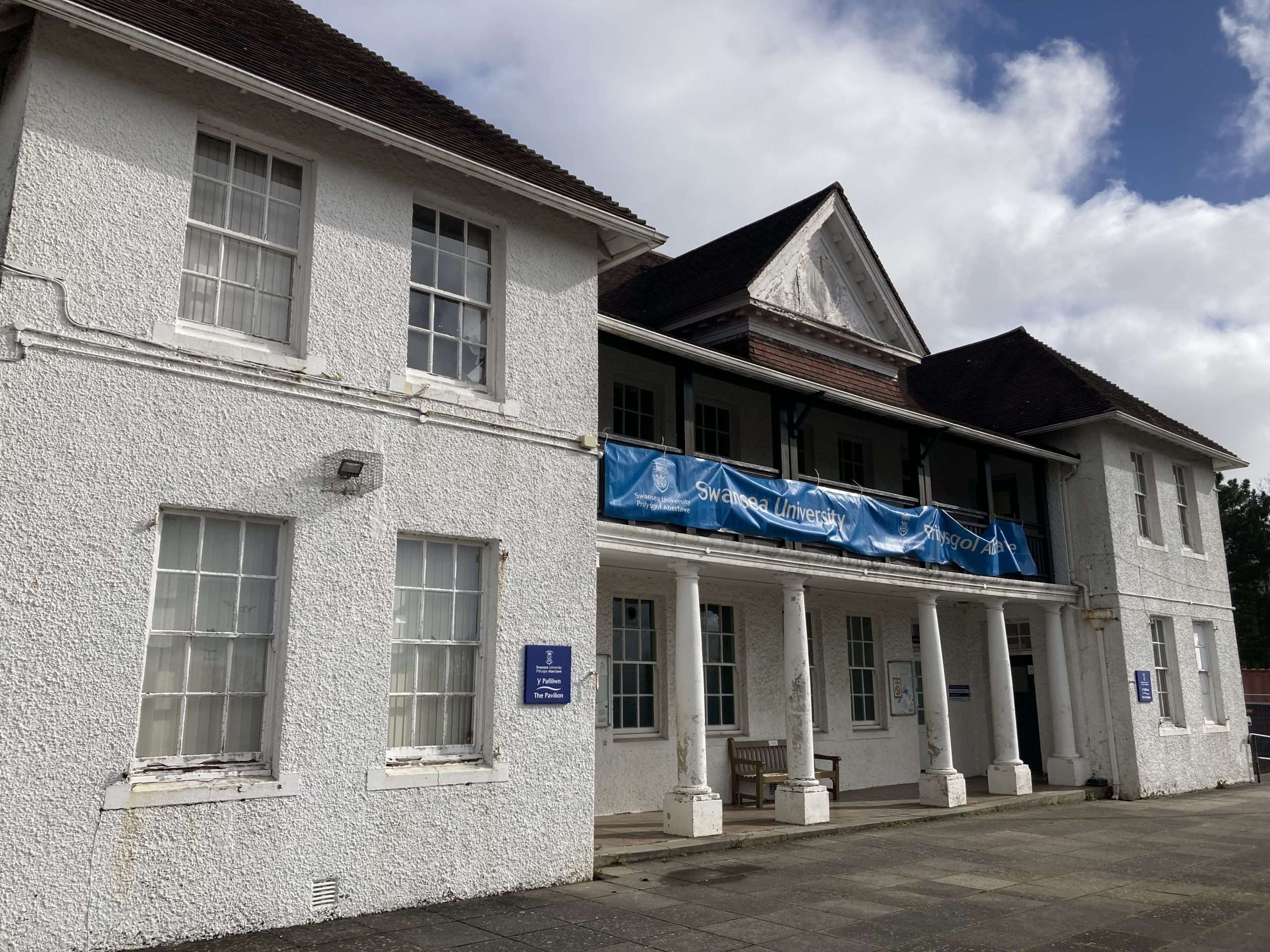The South West Wales Cancer Centre at Swansea’s Singleton Hospital has developed advanced techniques to the point where tattoos used to ensure patients are in the correct position are no longer needed.
Gaynor Laugharne, one of the first patients in Wales to have tattoo-less radiotherapy, pictured at the South West Wales Cancer Centre
Treatment outcomes are the same, but it means a huge psychological boost. Studies have shown that 78 per cent of UK people receiving radiotherapy would prefer not to have a tattoo or permanent mark.
Some opt to pay for laser tattoo removal after treatment, or to have the radiotherapy tattoos disguised with a different one.
Now the SWWCC has become one of just a handful of UK centres and the first in Wales to offer tattoo-less radiotherapy.
Although initially offered to breast cancer patients, the team aims to expand this to other tumour sites.
Previously, patients were tattooed with three dots when they had their CT scan during the treatment planning stage.
These were then lined up on the linear accelerator, which delivers the radiotherapy, to ensure the dose was accurately targeted. However, new technology is making that redundant.
All four of the centre’s linear accelerators can deliver what is known as Surface Guided Radiotherapy or SGRT. This uses body contour mapping, obtained during the CT scan, using a system called Sentinel.
SGRT means that if the patient changes position during radiotherapy treatment, the radiographers are alerted and the linac automatically stops, preventing damage to healthy tissue surrounding the tumour.

Right: Sophie with some of the radiotherapy team. See end of release for full caption
It’s this same pinpoint accuracy that has eliminated the need for tattoos.
Sophie Jenkins, SGRT and imaging lead at the cancer centre, said: “All radiotherapy patients have tattoos.
“The majority just accept it’s something that needs to be done. We do have patients who we speak to afterwards that have retattooed over them to cover them, but we were having a group of patients that refused point blank to have tattoos.
“This led to us developing a trial lasting around six months, looking at how we could use SGRT to its full capability and remove the use of tattoos altogether.”
As the centre has extensive experience of using SGRT for breast cancer radiotherapy, this was the first tumour site selected for the trial. Around 60 patients participated.
Gaynor Laugharne, from Gowerton, is one of the first to benefit from the tattoo-free breakthrough.
Before having her planning CT scan and radiotherapy, she was concerned she would have a permanent reminder of her cancer treatment. But, she said, she was really happy to find out that would not be necessary.
“It’s absolutely brilliant,” Gaynor added. “Knowing I won’t have to explain what the permanent marks are to anyone has made a real difference to how I feel about the treatment and my future.”
Sophie said the trial outcome had been very successful, with the data showing comparable results to radiotherapy with tattoos.
“And obviously it takes away the fact that these patients have got to have a permanent reminder of their cancer treatment. Unless they get it laser-removed, it is with them forever,” she said.
“Now we have implemented this, we will be looking at the next treatment site. It’s something that’s going to continue and is really just the start for us as a department.
“Everything will be done in a controlled manner, with in-house trials before each site is rolled out, but the end game is to offer tattoo-less radiotherapy for all our patients that would have needed a tattoo.
“We’re really proud of this achievement. We have been able to get to this point due to a real collaborative effort among the radiographers, the team of medical physicists and the SGRT lead physicists, Adam Selby and Becky Slinger, over the last five years.
“It’s going to have massive psychological benefit to our patients and, as always with us, the desire is to improve the experience of our patients and minimise any long-lasting reminders of their cancer treatment.”
Please donate here: Support Carmarthenshire News Online Thank you for supporting independent journalism and contributing to the future of local news in Carmarthenshire. Carmarthenshire News Online has been dedicated to providing unbiased and trustworthy news, free from commercial or political influence. By donating as little as £1, you can help ensure the continuation of this important source of information for the community. Your contribution will have a significant impact on the sustainability of independent journalism. If you're looking to enhance your brand's visibility, we also offer advertising opportunities on our Livestream and podcasts. Our special offers provide excellent value for reaching our engaged audience. To learn more about these opportunities and to discuss your advertising needs, please feel free to call or text us at 07308598604. Thank you again for your support, and together we can ensure the availability of quality local news for Carmarthenshire and beyond.
Please donate here: Support Carmarthenshire News Online







